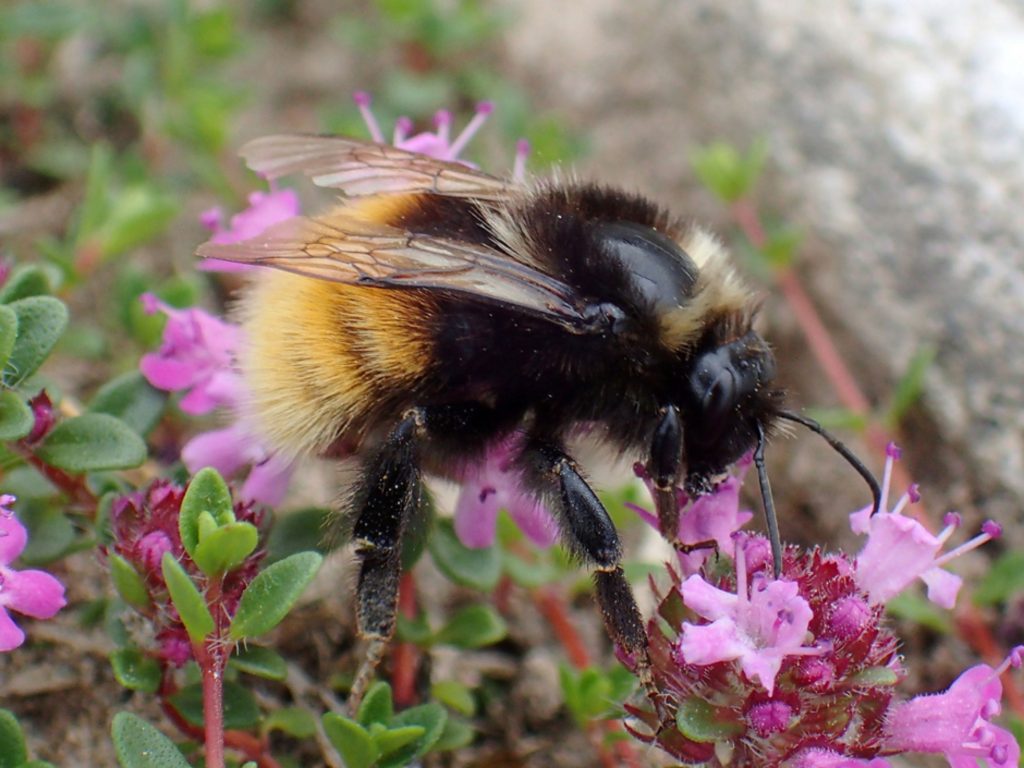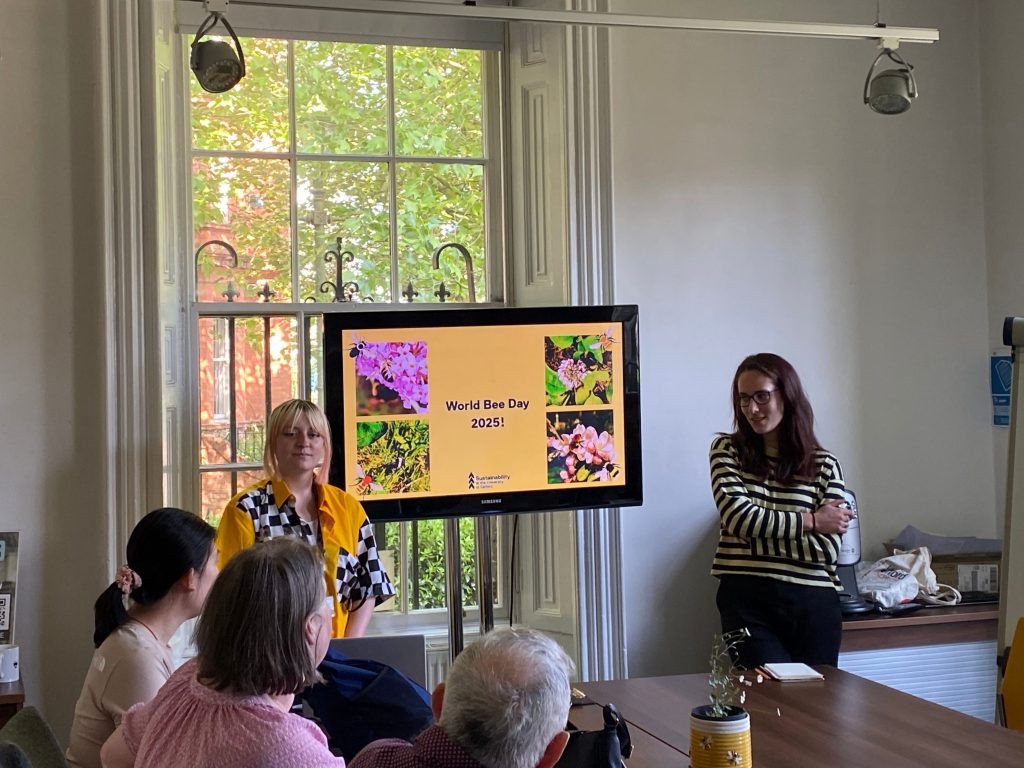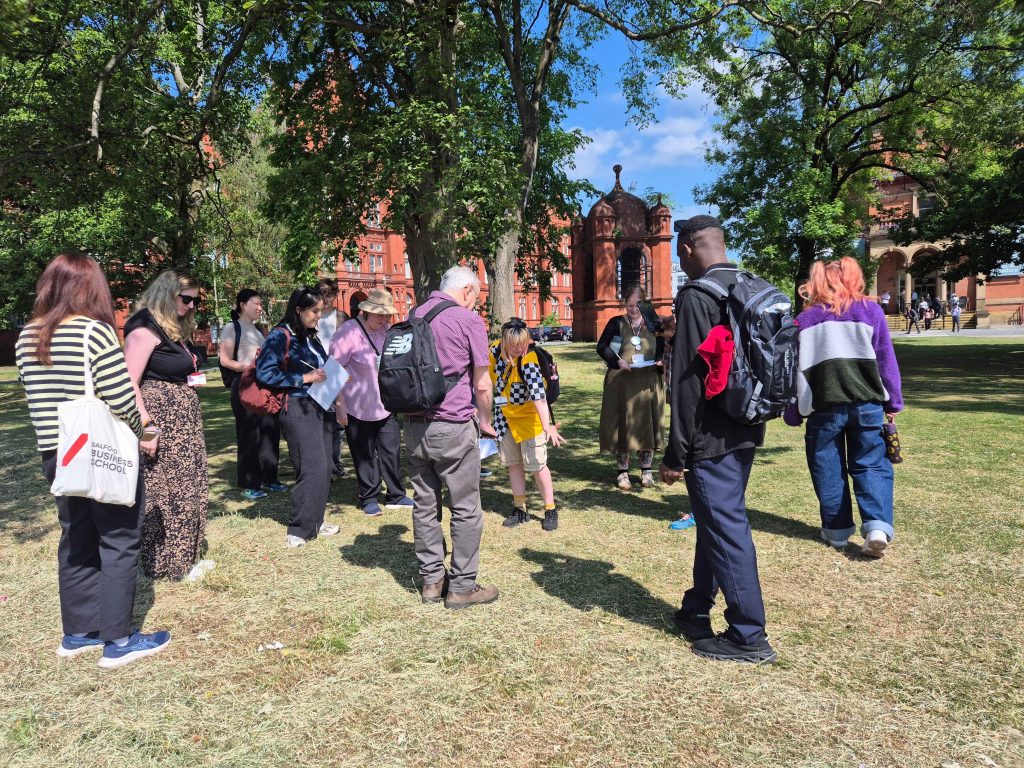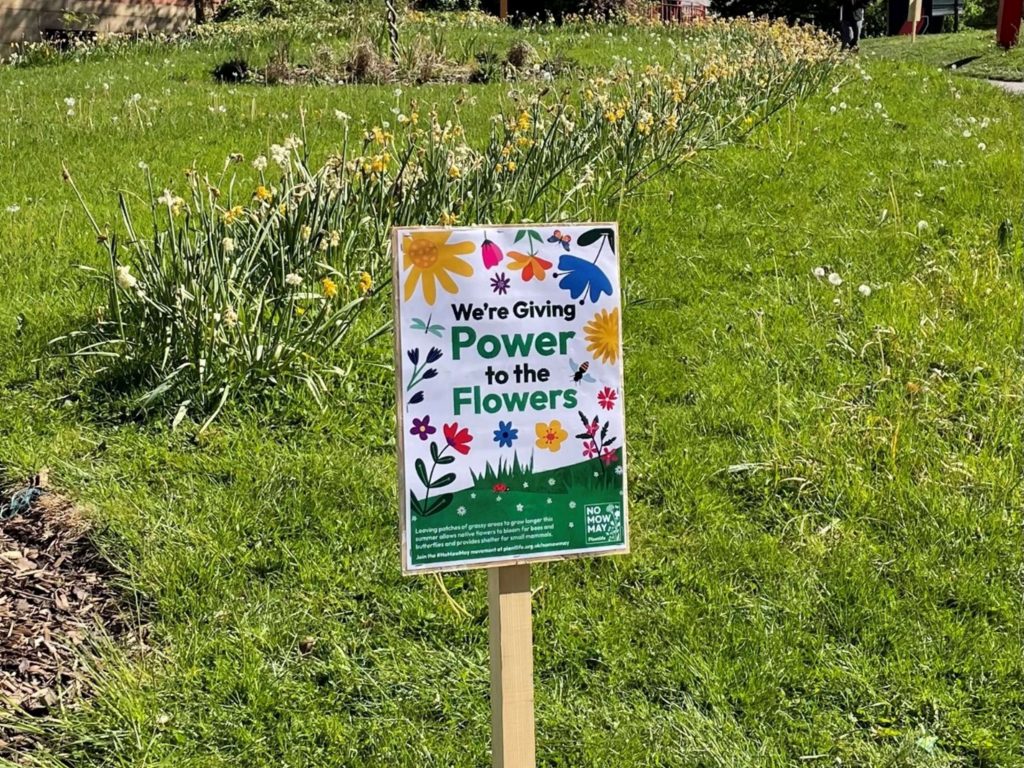20 March marks World Bee Day and what a glorious day it was for surveying Salford’s bees. Founded in 2018 by the United Nations, World Bee Day highlights the importance of bees and other pollinators.
Pollination is a process which enables flowering plants to reproduce and is primarily facilitated by insects. Whilst feeding on flower nectar, pollen attaches to insects and is then transported to other flowers of the same species. The flowers become fertilised and can produce fruit and seeds.
This process is an essential ecosystem service, producing over £690 million worth of crops every year – that’s every third mouthful of food you eat, highlighting the importance of protecting pollinators!

Unfortunately, all pollinators, including bees, are facing harsh declines caused by rapid expansion of urbanisation and the intensification of agriculture. Did you know….
- 35 UK bee species are endangered with extinction
- 80% of butterflies have declined in the UK
- 41% OF UK moth species are in decline
Bee Talk

The Sustainability Team celebrated World Bee Day this year by hosting a Bee Talk followed by a Bee Walk. The short educational presentation introduced attendees to the common bee species found on Salford’s campus and illustrated the University’s commitment to pollinators via the Pollinator Policy and the pollinator survey methodology.
Bee Walk

Following the Bee Talk was the Bee Walk. This walk was adapted from The Bumblebee Trust‘s national BeeWalk scheme. By walking a set route, bees can be monitored and data can be collected regarding bumblebee distribution and abundance. We recorded eight species of bee on our walk, two unencountered in the Environmental Sustainability Team’s previous surveys: the Early Bumblebee and the Tree Bumblebee.
No Mow May

At the University of Salford, we are committed to supporting our pollinators and are taking a “start small” approach by developing a Pollinator Policy. By starting small, we don’t mean small actions, we mean focusing on the small pollinators themselves. By looking at the creatures first, we can cause a snowball effect for other wildlife on campus, such as birds. As well as our Pollinator Policy, you “may” have noticed the No Mow May signs around Peel Gardens this month. It may appear untidy to some, but leaving lawns to grow during spring is a great effort for boosting flower growth. As 97% of wildflower meadows have disappeared since the 1930s, pollinators need all the flowers they can to forage.
If you’d like to help us in monitoring, not just the pollinators on campus, but other wildlife too then you can join us via iNaturalist. This platform is a way by which we will monitor the wildlife and biodiversity we have on campus so we can help support and protect them. You don’t need to know exactly what species they are as the platform can help you. You can set up an account with your university or personal account here.
Thank you to everyone that came along to the Bee Talk and Bee Walk, we were left buzzing with how well the event went and we will see you next Bee Day!